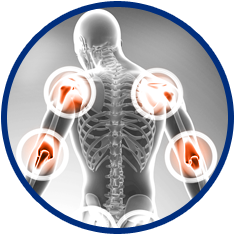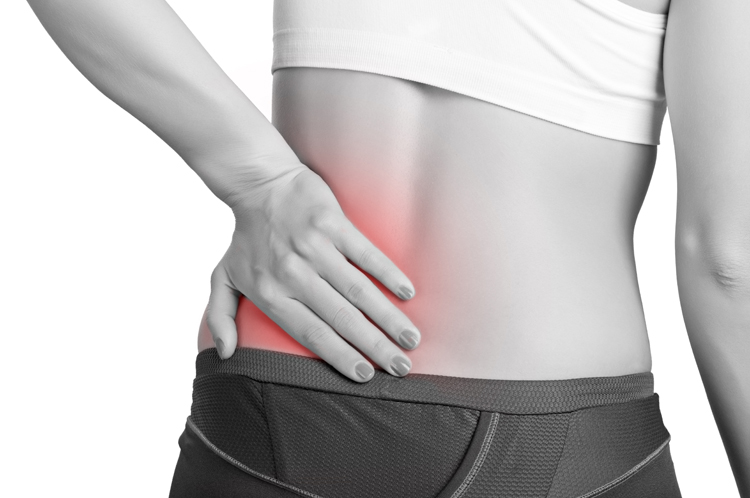|
Dedicated to a Multidisciplinary Approach
to Pain Management
|
|
|
|
Pain Relief in Mission Hills, Thousand Oaks & Northridge, California

Visiting the Office
There are many symptoms that indicate you need a pain relief specialist. Most issues involving back or neck pain can be remedied after meeting with one of our
medical experts.
Learn More
|

Publications
Our lead doctor, Dr. Arfai, has written numerous publications, abstracts, and presentations. He has many years of experience and has researched many aspects of the practice.
Learn More
|

Physician
Dr. Arfai is a graduate of Stanford Medical Center and double boarded in Anesthesiology and Pain Management. To learn more about Dr. Arfai, take some time to review his impressive academic background.
Learn More
|
Contact us in Mission Hills, Thousand Oaks or Northridge to schedule an appointment with our pain relief specialist.
|
|
|
About Us
Pain relief is within your grasp at Pain Management of Mission Hills, Thousand Oaks & Northridge. Located in Mission Hills, Thousand Oaks & Northridge, California, we offer qualified, professional care. Patients frequently praise us for the fast results they experience and for our friendly staff. You don't have to let chronic pain dictate your life. For more than seven years, we've helped our patients regain their freedom from pain and alleviate the aching conditions they deal with on a regular basis.
What is keeping you from getting the pain relief you need?
Believe it or not, most pain is not treated properly. One survey showed that only 1 out of 4 people with pain gets the right treatment. There are many reasons why you may not be getting good pain relief. You may:
|
• Be concerned about side effects from pain medicines, which often include nausea, vomiting, and dizziness. Many people stop taking their medicine - or take less than they should - even after surgery because of the fear of side effects
• Be worried that you will start relying on pain pills or will build up a tolerance to them and need more
• Not be getting strong enough medicine from your healthcare professional
• Have become used to living with the pain. You may even feel there is nothing you can do about it
• Be concerned about the minimally invasive procedures
|
 |
|
|
|
What's the harm in hurting?
Being in pain can affect your daily life. But did you know that if you don't get relief from your pain, you may be hurting yourself in other ways?
Being in pain can:
• Weaken your immune system. This can be a problem after surgery because it can put you at risk of infection. Or your wounds may not heal well.
• Make it hard to move around. Staying still too long can cause blood clots or pneumonia. This is especially a problem for older adults.
• Put stress on your body. This can cause harm and slow your recovery
• Face you to move or sit differently. You may lean back a lot, favor a leg, or brace yourself against things. These actions can make the pain worse
• Losing wages. You may lose your functionality, lose your job, income and your health insurance.
• Mood changes: you may get into depression and anxiety.
• Sleep disturbance: your sleep can be affected and therefore your daytime activities will be disrupted.
Feeling blue? It's not all in your head-the pain may be to blame
Living with pain can affect more than just the part of your body that hurts. It can make you feel anxious, depressed, scared, and angry. When you do not seek help for your pain, you may feel helpless or even hopeless. This can make you feel even more depressed. And when you are depressed about your pain, you may not seek care for other health problems. When your pain is controlled, you will not only be able to do more, but you will feel better.
Listen to your body. tuning in to the signs your body gives you is just as important as learning about your pain treatments.
Remember, pain that is allowed to continue and is not treated properly may lead to more problems down the road.
Talk to your doctor and healthcare team about your pain
Many of the barriers to treating pain come down to a simple lack of communication. The best way for members of your healthcare team to understand the kind of pain you are in is by what you tell them. It is important to describe your pain clearly and in as much detail as possible. the table below offers tips for getting pain relief.
Ignoring your pain now may cause more pain later.
Tips for getting relief from your pain
|
Act now
• Seek treatment as early as possible to avoid problems
• Make-and keep-follow up appointments to let your doctor know how you are feeling
• Keep a pain journal
Take help from others
• Bring friends or family members with you to your doctor's visits. They can help you take notes and remember details
Recognize your emotions
• Being in pain brings up all kinds of feelings. Depressed mood, sadness, and fear are just a few
• Allow yourself to have them
|
Take the upper hand
• Do not allow your pain to take over your life
Speak up
• Only you know how bad your pain is and how it is affecting your life
• Use descriptive language to explain your pain-the more details the better
• If one pain medicine is not working for you, do not be afraid to ask for a different one
Learn from the past
• Do not let past frustrations get in your way
|
|
|
|
Knowledge is power over pain-the more you know, the better you may feel
The next step in getting relief from your pain is to earn about treatments and how they work.
Your doctor likely started you on nonsteroidal anti-inflammatory drugs (NSAIDs) or acetaminophen. Both are used to treat mild or moderate pain. NSAIDs also treat swelling. Both of these treatments can have side effects if taken too much or if they are taken for too long.
If these types of medicine do not work, or if your pain is worse, your doctor may prescribe opioids. These are commonly used medicines for a pain that is moderate to severe.
|
Opioids work by blocking:
• The signals sent to the brain which tells you that you are in pain
• The pain messages your brain sends to your body
Opioids also make it easier for you to handle your pain by:
• Enhancing the effect of your body's natural pain-relieving system
Your other option for treating pain conditions is utilizing interventional therapies. Steroids work by:
• Reducing inflammation and swelling
• Reducing production of pain-producing substances
|
Interventional therapies available for pain include:
• Epidural steroid injections (intralaminar or transforaminal)
• Facet joint injections
• Facet joint rhizotomy/ablation or radiofrequency ablation of medial branch nerve
• Spinal cord stimulator
• Sympathetic blocks
• Nerve blocks
• Botox injection
Find pain relief within your grasp at Pain Management of Mission Hills, Northridge and Thousand Oaks, CA providing qualified, professional care.
|
|
|
|
Contact Us
To schedule an appointment, complete the form below with your name, contact information, and appointment date request. A confirmation will appear after you click "Submit." A representative of our office will then contact you to confirm your appointment. We look forward to helping you with your pain problems!
Phone
(818) 359-8833
Hours of Operation
Monday – Friday, 9:00 a.m. – 5:00 p.m. PST
Proudly Serving
A 50-Mile Radius That includes Northridge, Porter Ranch, Sylmar, Santa Clarita, Thousand Oaks, Reseda, North Hollywood, Panorama City, Encino, and the San Fernando Valley
View Our Locations
|
|
|
|
|
|
|